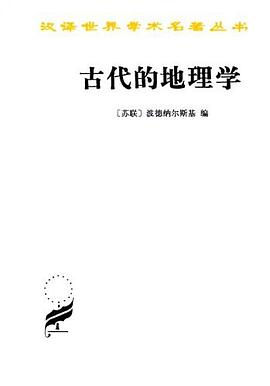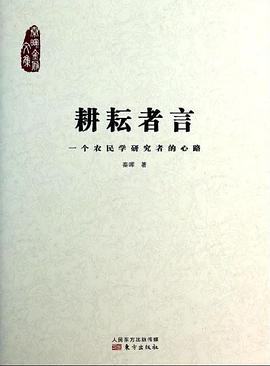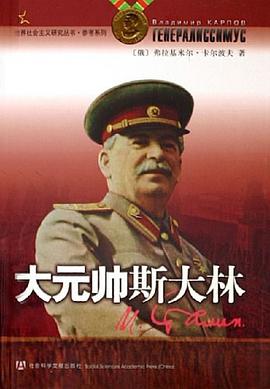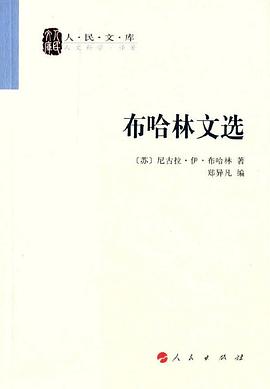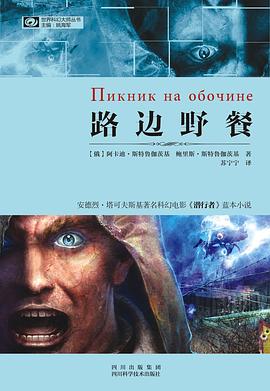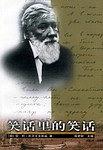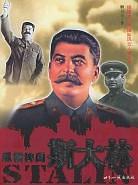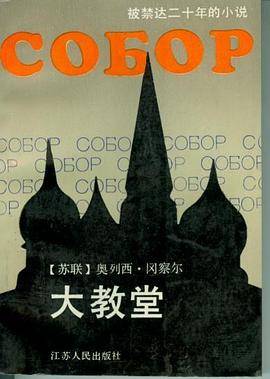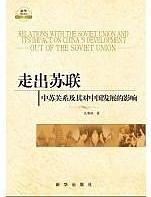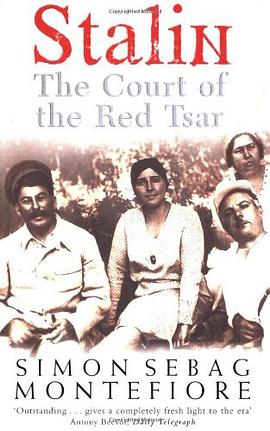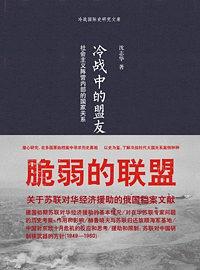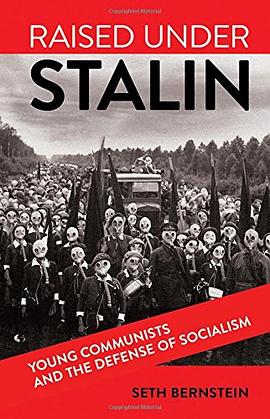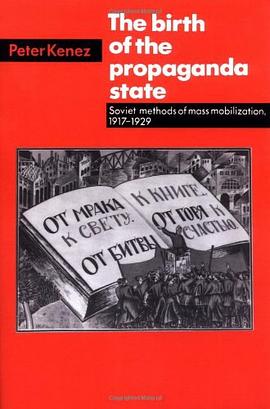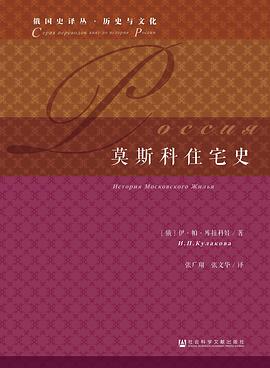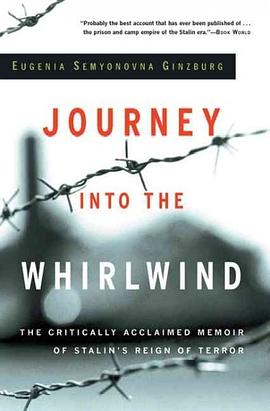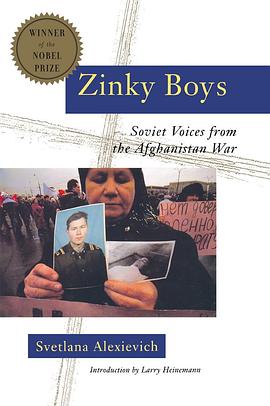

具体描述
From 1979 to 1989 a million Soviet troops engaged in a devastating war in Afghanistan that claimed 50,000 casualties―and the youth and humanity of many tens of thousands more. Creating controversy and outrage when it was first published in the USSR―it was called by reviewers there a “slanderous piece of fantasy” and part of a “hysterical chorus of malign attacks”―Zinky Boys presents the candid and affecting testimony of the officers and grunts, nurses and prostitutes, mothers, sons, and daughters who describe the war and its lasting effects. What emerges is a story that is shocking in its brutality and revelatory in its similarities to the American experience in Vietnam. The Soviet dead were shipped back in sealed zinc coffins (hence the term “Zinky Boys”), while the state denied the very existence of the conflict. Svetlana Alexievich brings us the truth of the Soviet-Afghan War: the beauty of the country and the savage Army bullying, the killing and the mutilation, the profusion of Western goods, the shame and shattered lives of returned veterans. Zinky Boys offers a unique, harrowing, and unforgettably powerful insight into the realities of war.
作者简介
Svetlana Alexievich was born in Ivano-Frankivsk, Ukraine, in 1948 and has spent most of her life in the Soviet Union and present-day Belarus, with prolonged periods of exile in Western Europe. Starting out as a journalist, she developed her own nonfiction genre, which gathers a chorus of voices to describe a specific historical moment. Her works include The Unwomanly Face of War (1985), Last Witnesses (1985), Zinky Boys (1990), Voices from Chernobyl (1997), and Secondhand Time (2013). She has won many international awards, including the 2015 Nobel Prize in Literature “for her polyphonic writings, a monument to suffering and courage in our time.”
目录信息
读后感
空余时间我在一家博物馆的陶瓷馆做志愿讲解员,讲完东汉,便进入三国,这个时代少有好看的瓷器,作为一个过渡,我会说“三国及魏晋南北朝时期瓷器发展停滞下来,这是中国历史上政权更迭最频繁的时期。由于长期的封建割据和连绵不断的战争,人口锐减,仅仅黄巾起义和三国混战这...
评分空余时间我在一家博物馆的陶瓷馆做志愿讲解员,讲完东汉,便进入三国,这个时代少有好看的瓷器,作为一个过渡,我会说“三国及魏晋南北朝时期瓷器发展停滞下来,这是中国历史上政权更迭最频繁的时期。由于长期的封建割据和连绵不断的战争,人口锐减,仅仅黄巾起义和三国混战这...
评分这本书并不是一本读来会让人愉快的书。但阅读,终究也不只是为了愉悦。有些时候,我们总要像卡夫卡所言那样,“读一些会刺痛我们的文字”。 《锌皮娃娃兵》是一本有关阿富汗战争的纪实文学作品。本书作者,白俄罗斯女作家阿列克谢耶维奇在这部作品中使用的手法令人印象深刻...
评分《锌皮娃娃兵》S.A.阿列克谢耶维奇 第一次认识到战争的残酷,大概是在看了电影《芳华》中的战争场面,特别是被救治的伤员和阵亡者的遗体,好像肢体和内脏器官都是可拆卸的零件,而《锌皮娃娃兵》中描述的战争血腥残酷面与此几乎相同。战争分解了一个完整的人,既是肉体层面的,...
评分有一种刺痛叫做真实 ——《锌皮娃娃兵》,在战争里面没有幸存者 你还记得高中课本里面的那句藏在坦克图片下面简短的话么?“苏联入侵阿富汗”,历史书就这样草草带过,在20世纪,除了二战的盟军的胜利,似乎没有什么可以被记住的故事了。新闻越短,事件越大。在这句话的下...
用户评价
这本小说给我的感觉是,它像一首极其悠长、哀婉的民谣,充满了泥土的芬芳和时间磨砺出的粗粝感。它的语言风格非常朴实,没有华丽的辞藻,但每一个句子都像钉子一样,准确地敲击在情感的核心部位。我感觉作者对笔下人物的关怀是极其深厚的,即使是最边缘、最不起眼的角色,也有着自己完整而饱满的内心世界。我常常会因为某句不经意的台词而停笔良久,思考其背后所代表的命运的无常。它描绘的那些人,他们的爱与恨,他们的坚守与妥协,都显得那么真实可触,像是邻居家会发生的故事,只是被放置在了更宏大的历史背景下。读完之后,心里留下的是一种久久不能散去的温情和一丝不易察觉的忧伤,非常耐人寻味。
评分说实话,这本书的阅读体验简直是一场智力上的挑战,但绝对是值得的。它的叙事方式非常后现代,充满了各种跳跃和意象的堆砌,初读时可能会感到有些晦涩难懂,很多地方需要反复咀嚼,甚至需要查阅一些背景资料才能完全领会作者的深层用意。然而,正是这种“难读”,才造就了它独特的艺术魅力。它拒绝给你一个简单的答案,而是把你扔进一片迷雾之中,让你自己去寻找意义的碎片。我特别喜欢其中对于语言本身的玩味,那些看似随意的对话,其实蕴含着极高的密度和多重含义,仿佛每一个词语都被赋予了额外的重量。读完后,我感觉自己的认知边界被拓宽了不少,它迫使我以一种全新的、非线性的方式去思考叙事和现实的关系。这是一部需要用脑子去“啃”的作品,而非简单的消遣。
评分这部作品,简直就是一部沉浸式的历史剧,把那个特定年代的氛围感拿捏得死死的。我读到它的时候,仿佛亲眼目睹了那些场景,那些人物的挣扎、希望与幻灭,都栩栩如生地呈现在眼前。作者的笔触细腻得让人心惊,对于环境的描写,无论是宏大的战争场面还是日常生活的琐碎细节,都充满了质感。读完之后,我需要花好几天时间才能从那种压抑又壮阔的情绪中抽离出来。它不仅仅是讲述了一个故事,更像是在邀请你进入一个平行时空,去切身体会那个时代独有的精神内核。我尤其欣赏作者在处理复杂人性时的那种不动声色的力量,没有刻意的煽情,但字里行间流露出的苍凉感却足以让人泪目。这本书的结构安排非常巧妙,节奏的张弛有度,总能在你以为要平静下来的时候,突然抛出一个让你心头一震的转折,让人根本停不下来。
评分我必须得承认,这是一部在文学技巧上达到了登峰造极水准的作品。作者对时间线的操控简直是鬼斧神工,时而拉伸,时而压缩,让你完全沉浸在一种既熟悉又陌生的时空感中。特别是书中对于环境声响和光影的描摹,达到了近乎于电影镜头的精准度。我尤其赞赏它在叙事视角上的灵活转换,一会儿是全知全能的上帝视角,一会儿又突然切入某个角色的主观意识流,这种切换带来的冲击感非常强烈。很多段落的句式结构复杂,长短句交错使用,节奏感极强,读起来就像是在听一场精心编排的交响乐,高潮迭起,余音绕梁。对于追求文学性的读者来说,这本书绝对是值得反复研读的范本。
评分这部作品的阅读体验,怎么说呢,就像是喝了一口非常烈的酒,初尝时辛辣刺激,回味却带着一丝丝甘甜的忧郁。它的情感表达非常克制,作者似乎非常谨慎地控制着情绪的阀门,只允许最核心的、最难以言喻的部分流露出来。这使得整部作品的气质非常冷峻和成熟。我读到一些关于选择与代价的段落时,深感震撼,它探讨的不是简单的对与错,而是身处困境时,人性的微妙张力。这本书的魅力在于它的留白,很多重要的转折和人物的命运,作者都没有直白地给出结论,而是留给读者自己去脑补,去填补那些未被言说的空白。每次重读,都会因为自己阅历的增加,而对那些留白产生新的理解,这大概就是一部优秀作品的生命力所在吧。
评分每一个字都是一滴血。
评分诺贝尔文学奖作家的代表作之一,以口述形式记录了各色各样亲历了苏联入侵阿富汗十年战争的人们:军人,护士,心碎的母亲。书名意指当时阵亡的苏联士兵装在封死的锌皮棺材中,而那些士兵大多只是十八九岁的孩子。战争的荒唐残酷,军队的腐败混乱,种种情境如同人间地狱,而这种人间地狱,二十多年来每天都在这个世界上演,如今更是愈演愈烈。我对国际政治所知有限,不敢妄言,也反感任何简单粗暴的断言。愿第三次世界战争永远不来,愿人间再无任何战争。
评分1992 "There’s something immoral, voyeuristic about peering too closely at a person’s courage in the face of danger/be branded/Fear is more human than bravery/the murder of courage/the definition of politics?mosquito piss but even thinner than that/I brought my truth back in a plastic bag head arms legs all skinned/War has a strange logic of its own
评分每一个字都是一滴血。
评分1992 "There’s something immoral, voyeuristic about peering too closely at a person’s courage in the face of danger/be branded/Fear is more human than bravery/the murder of courage/the definition of politics?mosquito piss but even thinner than that/I brought my truth back in a plastic bag head arms legs all skinned/War has a strange logic of its own
相关图书
本站所有内容均为互联网搜索引擎提供的公开搜索信息,本站不存储任何数据与内容,任何内容与数据均与本站无关,如有需要请联系相关搜索引擎包括但不限于百度,google,bing,sogou 等
© 2026 book.quotespace.org All Rights Reserved. 小美书屋 版权所有


